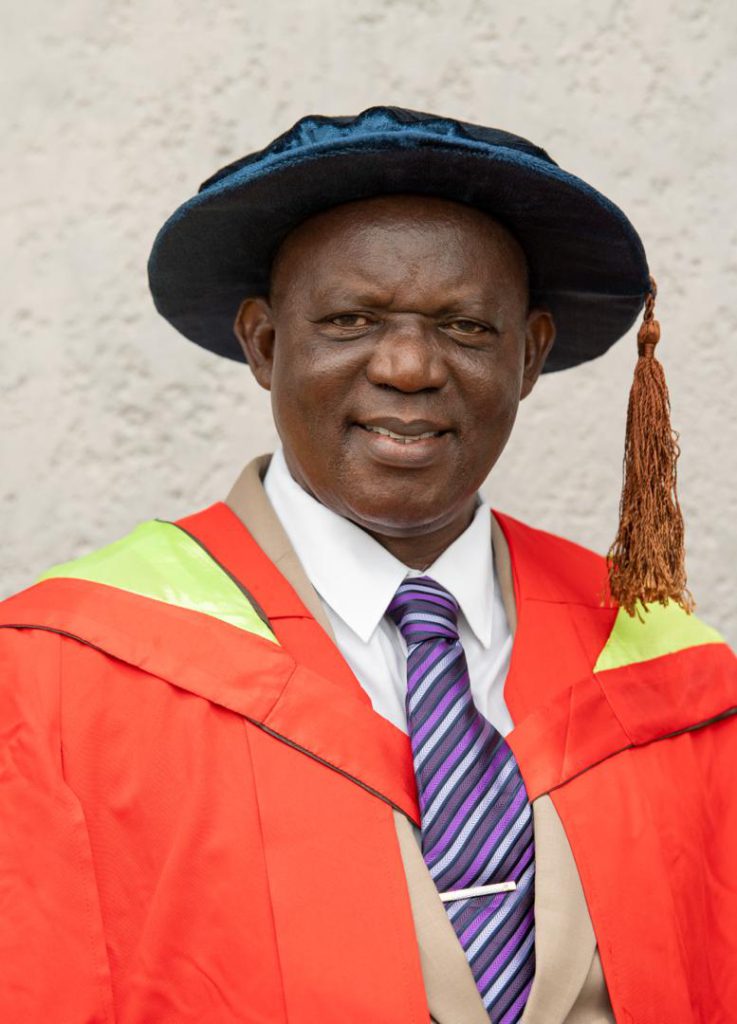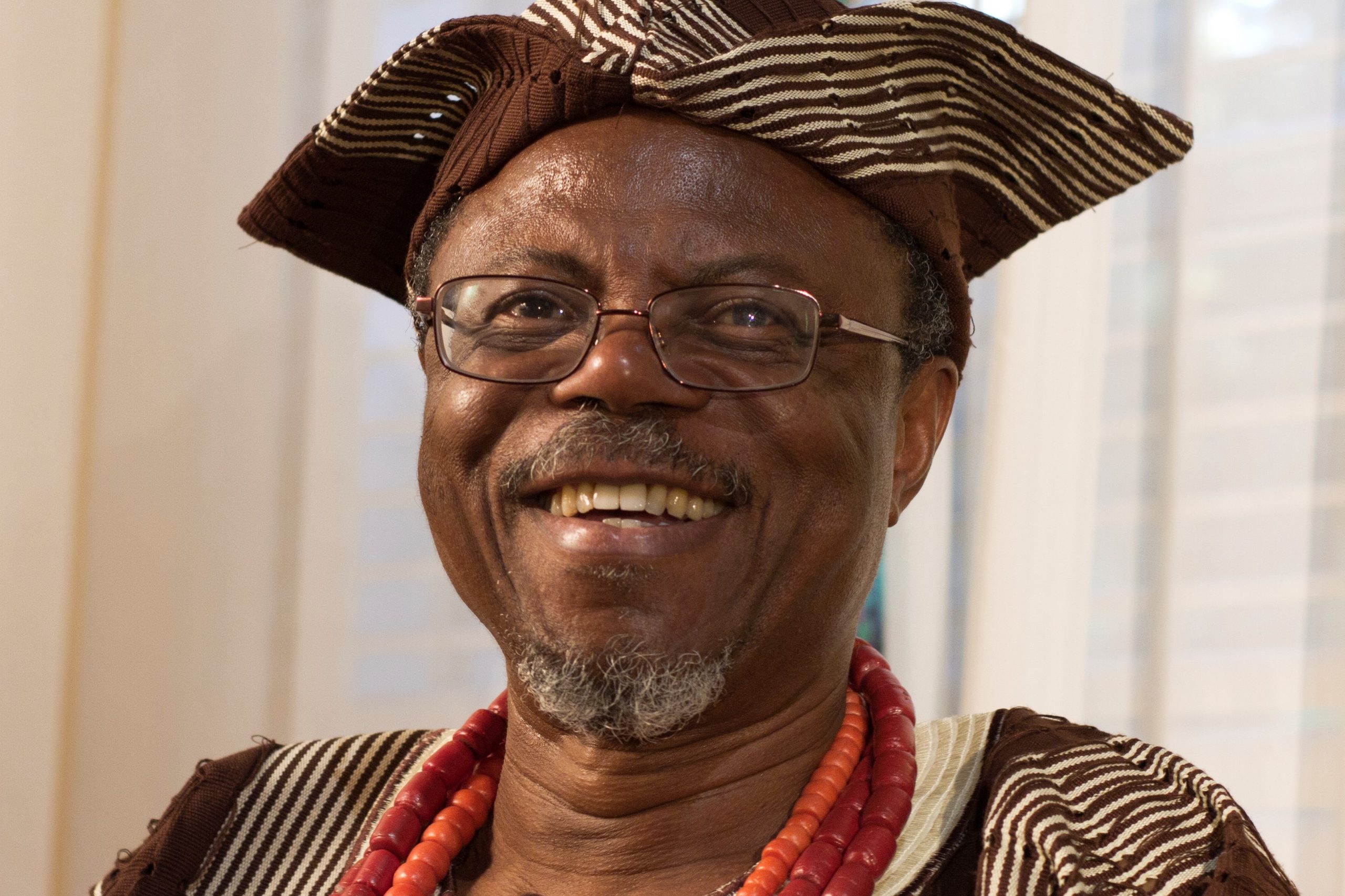By Toyin Falola
On April 16, 2024, Professor Ezekiel Oladele Adeoti will give his Inaugural Lecture, the 95th of such, at the Lagos State University. A few weeks later, as he turns 70, he must fulfil the requirements of mandatory retirement. As someone who has been following his career for so long, it is easy for me to do some reflections on the center of his world.
For a long time, the academic world has seen the genesis of great minds who commanded respect and displayed unmatching intellectual prowess as master craftsmen. For everyone who dazzled their audience with outstanding academic scholarships, there exists a predictable emptiness and feeling of reluctance at the supposed retirements of great scholars. The feeling of emptiness is an expected reaction of the academic society after the realization that someone of the standing of Professor Ezekiel Oladele Adeoti would take a final bow from the academics and proceed to observatory roles like an old sage and owl points the rest to paths through the labyrinths of the future.

Sometimes, one would ask why a man of such achievements would have embraced the life of solemnity, but his story has taught us that life is a great teacher one must listen. Professor Adeoti’s experience, both in academic and personal engagements, has made him see life exhaustively like an oracle to see the extent of it. The dynamics of his relationship with people and values could be informed by his humble beginnings and the nitty gritty of peaceful co-existence borrowed from family dynamics. This could have been how he lived with a conviction of high spirit, generosity, and tolerance. This is evident in his pedagogy, knowledge production, and community services.
The pedagogical impact of Professor Adeoti transcends mere lecture room shenanigans as the engagements of someone like him exude an atmosphere of a blacksmith’s hut, the students, the iron and his brilliance, the anvil and the hammer. With many years of experience enriched by the medals of academic slopes and climbs, the touch of his teaching only leaves a refining effect on the students, the listeners, and the society as he carefully reengineers their perspectives and gives them lenses through which life and concepts should be seen. With his retirement, we could reflect on his existence, the brilliance he has penned, and the knowledge produced with the ink of long-term wisdom and the echoes of inspiration and unwavering dedication to scholarship.
Without any attempt at exaggeration, Professor Adeoti is surrounded by testimonies that allude to his remarkable style of teaching. His ability to break sophisticated concepts for ease of understanding stands him out among others. This could be because of his experience at each level of education in the country. He has taught in primary school, secondary, and tertiary, as well as engagements with postgraduate students. This has given him access to diverse people with diverse levels of understanding and might also be the reason why he prioritizes conceptual understanding in his engagements with students. This experience has also made him build his techniques, which are unique enough to leave everyone impressed.
His role, while teaching up to the university level, is a major milestone in the lives of everyone who passed through his classes. His commitment to the study of history, the right attitude to work, and a total flair for structure and organization are a great testimony offered by everyone under his watch. As an academic scholar, he dislikes a rigid approach to knowledge transmission. He believes and preaches the value of freedom of expression, innovation, and the willingness to think and act outside the confines of rigid structures to build a well-informed mind. This is the basis upon which he had built his pedagogy in historical studies.
As a researcher, he has proven to be one of the important factors in the epistemological development of Nigerian history, and his contributions have weighed very high. His research has been paramount to societal development and hinged on the importance of educational sanctity and sanity, nationalism, and economic progression in the trajectory of Nigerian development. His research has even cut through the multidisciplinary walls as he has touched on health, economics, environments, and societal organization.
The overriding perspective in Adeoti’s art of historiography is deliberate care for efficient collection of fact and fact interpretation to dislodge qualifying encumbrances in historical accounts. He understood the futility of misinformation and its direct impacts on the coming generations and perspectives. The zeal to get and report it right is visible in the various publications to his name. Prominent amongst them is the historical masterpiece on the Archdeacon Alayande in the piece entitled “Alayande as Educationist, 1948-1983: A Study of Alayande’s Contribution to Education and Social Change.” This work is celebrated for its accuracy in cross-checking facts, as it was based on oral and documented versions of the Archdeacon’s role in transforming education. The work holds great significance for two reasons. First, it depicts Pa. Alayande in the same light as the late Chief Obafemi Awolowo, whose legacy for human development and zeal for Western education in the Southwest became a model for all. Secondly, Prof. Adeoti beautifully mirrors Alayande as a major player in history with his diversified life as an educationist, unionist, businessperson, and philanthropist, amongst others.
To further trace the foundation of education in Nigeria, his work, “The First One Hundred Years of Western Education in Ibadan, 1852-1952: An Historical Analysis,” details a discussion of a century-old history of education in Ibadan finding its way back to the efforts of colonial masters in introducing European styled formal education through Missionaries. It vividly captures the historical evolution of Western Education in Ibadan between 1852 and 1952. Professor Adeoti expatiated on the integration of Western-style education into Ibadan and the convictions that led to the donations and call for expansion of learning facilities championed by voluntary societies at that time. The writing forms a trace to one of the early highlights of the educational development of Nigeria.
The same endeavor to have a right trace of educational history in Nigeria propelled the research between him and the history icon, Emeritus Professor J. F. Ade Ajayi, with the publication of: “St Andrew’s College, Oyo: Pioneer of Tertiary Education in Nigeria.” They restate the fundamental role of the College in 1896 to the tertiary education advancement in Nigeria as it served as the oldest Teachers’ Training Institution in Nigeria. His interest in the development of education and educational institutions in Nigeria drew him to the study of the roles of UNESCO in the educational advancement of the country. In “Education and Sustainable Development in Nigeria: An Analysis of the Contributions of UNESCO, 1960-2018,” Professor Adeoti states the international concerns about the temporal trends of education in Nigeria and their attempts at creating standards and remodeling them. The work is pivotal to the study of educational development in Nigeria as it covers the exploits of UNESCO in rebranding Nigerian education, especially in critical areas like teacher education, hands-on technical and scientific education, promotion of adult literacy, and advocacy for girl child education.
Aside from his teachings and remarkable research contributions, the relevance of Professor Adeoti in the university community and the society at large cannot be overemphasized. He has proven to be an example in educational administration and leadership, and his roles as Head of Departments, functions in committees, and other engagements bear credence to his impeccable leadership abilities. His role in the reinvigoration of the History and International Relations Department at the Lagos State University cannot be underrated. This commitment is also extended to his community with a deliberate commitment to communal development.
As we gratefully acknowledge the inevitability of the end of active service in academics and community service, Professor Ezekiel Oladele Adeoti’s retirement serves as a poignant reminder of the cyclical nature of life and the significance it holds in his illustrious career. No doubt, there’s a beginning and its equivalent end. While he might have taken a seat back, his achievements are a beacon to the new generation to keep the fire burning. In honouring his work, we pay homage to a true intellectual might whose passion for knowledge and dedication to excellence will forever be etched in the annals of history.
Ezekiel, the “strength of God.”
God will strengthen you
Oladele
Your prosperity will abide with you
Adeoti
Your crown will not turn into dust.
I will look for you at 80 to eat my chicken and jollof rice since I am going to miss the party at your Inaugural Lecture and 70th birthday. The past is not your future.


